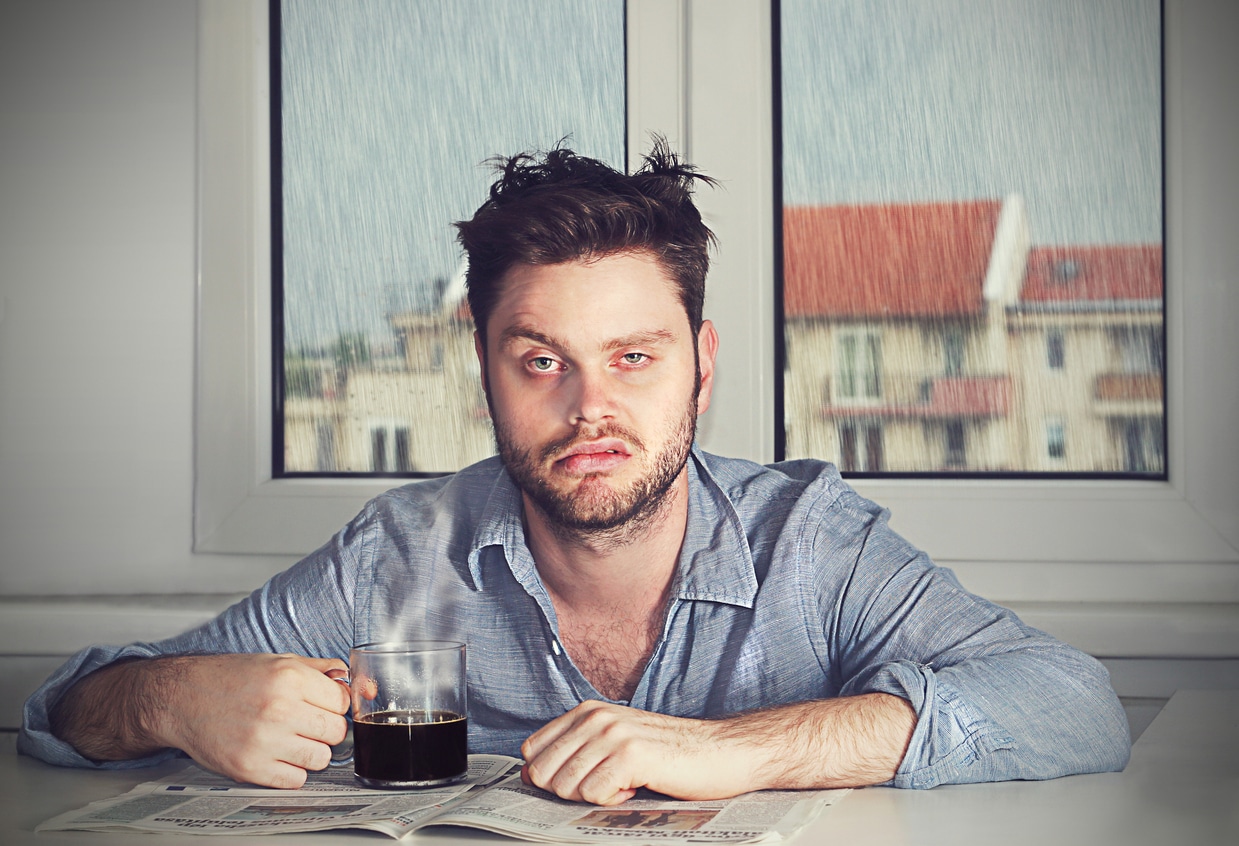Ever notice how, after a day of rain, you just want to curl up in bed and sleep? If so, you’re not alone. Many people feel an inexplicable tiredness during rainy weather, and it is so common it is often referred to as ‘rainy day blues’. But why does rain make you tired? Let’s take a closer look at this strange phenomenon.
Read also: Can the weather make you tired?
How rain makes you sleepy
There are a few reasons why rain, particularly in the winter months, can make us want to fall asleep:
1: Barometric Pressure Changes
One of the most commonly-cited reasons for feeling tired after a rainy day is barometric pressure changes. Barometric pressure is the measure of atmospheric pressure, or the weight of air pressing down on us from above. When it rains, barometric pressure tends to decrease, causing us to feel an overall sense of fatigue. This is because our bodies are sensitive to changes in atmospheric conditions; as these conditions change, so too does how we feel physically and mentally.

2: Sound of rain
Have you ever noticed that even the sound of rain falling can make you feel tired? It turns out that there’s a scientific explanation for why this happens. Let’s take a look at why the sound of rain produces a soporific effect on our brains.
It all has to do with something called pink noise. Pink noise is a mix of high-frequency and low-frequency sounds, and it’s been proven to have an effect on humans. Pink noise is similar to white noise , but it has a slightly greater emphasis on the lower frequency sounds, which have been proven to produce feelings of calm and relaxation in people.
The sound of rain is actually composed of pink noise, which is why it can be so soothing and cause us to feel tired. Research shows that sleeping in a room with pink noise can lead to deeper sleep, less waking up throughout the night, and improved memory recall. And since natural phenomena such as rain, wind, ocean waves, and even leaves rustling produce pink noise, it makes sense that these sounds can help us relax and feel sleepy.
3: Humidity
Humidity levels also tend to rise when it rains. High humidity makes it harder for sweat evaporate from our skin, which causes us to feel warmer and more tired because our bodies are working harder in order to cool down. In addition, high humidity levels can make breathing difficult, leading us to expend more energy than normal just so we can breathe properly. All these factors combine together to create a feeling of exhaustion that only increases as the day goes on and rainfall continues.
4: Less sunlight
Rainy days tend to have less sunlight than normal, which can be a contributing factor to feeling sleepy. This is because our body’s circadian rhythm, or natural sleep-wake cycle, is regulated by light exposure. When it rains and there’s less sunlight during the day, our bodies think that it’s nighttime and we should be sleeping. As a result, our bodies will try to conserve energy and force us into rest mode by making us feel sleepy and tired.
5: The Psychological Effect
It’s not just the sound of rain that helps us unwind; what we associate with it also plays a role in how relaxed we become when we hear it. Most people think of rainy days as cozy days spent inside reading or snuggled up in bed watching movies—both activities which naturally make us want to take a nap! Our brains make these associations between the sound of rain and restful activities, so when we hear those droplets falling outside our window our bodies instinctively tell us to get some shut-eye.
Rainy days are often associated with being cooped up inside or not wanting to leave the house—all activities that don’t require much energy or movement. So when it’s raining outside, we often end up spending most of our time sitting or lying around doing nothing productive at all. This lack of activity means we don’t get any physical exercise or mental stimulation—both of which can help stave off fatigue and make us feel more energized throughout the day—which only serves as further fuel for our sense of drowsiness and exhaustion.
6: Blue light from more screen time
When it is raining outside we tend to spend more time looking at screens such as the TV, our laptops, phones and tablets. This can be tiring because the blue light emitted from these screens can disrupt our body’s natural circadian rhythm, which is responsible for regulating sleep and wakefulness. As such, when we spend more time in front of a screen during a rainy day, our bodies can think it is still daytime even when it’s night outside—leading us to feel more tired and groggy.
Read also: Why does gloomy weather make me tired?
How To Combat Rain-Induced Fatigue
If you find yourself feeling particularly sleepy on days that have been particularly wet or gloomy, here are some tips you can use to combat your fatigue:
Get outside and get active!
Even if it’s raining outside, try going for a walk or jog around your neighborhood. Physical activity will help keep you alert throughout the day. Also, being outside will mean you will get as much natural light as possible and be able to combat some of that rainy day sleepiness.
Try investing in some blue light blocking glasses
These special glasses help block out harmful blue light from electronic screens which may be keeping you from getting quality rest at night (and causing daytime drowsiness).
Avoid consuming caffeine late in the day
Drinking caffeine in the afternoon and evening can lead to disrupted sleep cycles which will only worsen your fatigue symptoms on rainy days.
Sleep hygiene
Practice good “sleep hygiene” by setting regular sleep/wake times each night before bedtime. This will help ensure that your body gets into a healthy routine (which can reduce daytime drowsiness).
Light therapy
Finally, consider investing in some light boxes or alarm clock lamps. These tools simulate natural sunlight and can help you feel more energized even when it’s rainy outside. With these simple tips, you should be able to combat the drowsiness that comes with rain and tackle every day with more energy.
Conclusion: Why does rain make you tired?
Rain can make us feel sleepy and exhausted because of the sound of rain which has a relaxing effect, high humidity levels making it harder to cool down, our brains associating rainy days with restful activities, not getting enough physical activity or mental stimulation during rainy days, and exposure to blue light from screens disrupting our body’s natural circadian rhythm.
